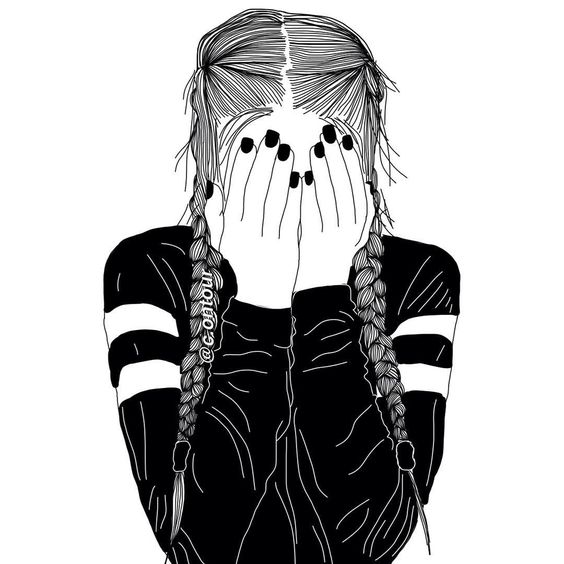
image from Pinterest link HERE
Saying “no” to people comes very easily to some and is nearly impossible for others.
I have found that many people with C-PTSD have trouble saying no. If you were brought up in a mentally or otherwise abusive childhood, saying “NO,” may be associated with severe consequences to you.
If you lived with a parent that had narcissistic personality disorder or borderline personality disorder, then they probably used confusion tactics on you, to the point where there was “no” way to say no to them.
Gaslighting can confuse our ability to trust ourselves and our perceptions.
It may be difficult to tell what situations that “NO,” would be perfectly okay, and what situations where saying no, would really cause a problem.
If you grew up in an environment where your feelings and thoughts were not considered relevant, then you probably feel that your feeling of wanting to say no, just does not count. Even though the same person may say “No” to you all the time, you do not feel that you have the same right to say no, that they do.
If you were even in an abusive situation where disobeying meant punishment , then you probably have a fear of retaliation from others. There is an anxiety response triggered by saying no and refusing to comply with another person’s request.
THE ACT OF SAYING NO, CAN TRIGGER A VERY UNCOMFORTABLE PHYSIOLOGICAL RESPONSE. IN ORDER TO AVOID FEELING SEVERELY UNCOMFORTABLE, WE JUST SAY “YES” WHEN WE REALLY WANT TO SAY “NO.”
Triggers are very real and the tendency is to want to avoid feeling the bodily sensations associated with them. Ignoring triggers and going against our conditioned responses, is a very difficult thing to do.
IT IS PERFECTLY NORMAL AND ACCEPTABLE FOR YOU TO SAY “NO” TO PEOPLE WHEN THEY ARE ASKING YOU TO DO SOMETHING THAT YOU DO NOT WANT TO DO OR SOMETHING WHICH CROSSES YOUR BOUNDARIES.
You are allowed to set personal boundaries for yourself. You can also set boundaries for certain people that you do not want crossed.
You can set boundaries in regards to your emotions, your time, your energy, your work and your social interactions. You can set boundaries in regards to dating, doing work for people and doing favors for people.
You can set boundaries about your personal space and your personal items.
Any situation where someone is trying to get you to do something by using your emotions against you, is a situation where your boundaries need to come into play.
Sometimes people do not accept your simple NO or your reasons for saying NO. They try to convince you be making you feel guilty or by shaming you.
They are trying to use your good and caring personality against you.

image from mylovestory.me and Pinterest
They want you to feel bad and they do this by intentionally pushing whatever buttons they know you have. If they know that you want to feel like you are cooperative they will call you uncooperative.
If they know that you have helped them many times in the past, they will lie and tell you that they do not remember the last time you did them any favors.
Don’t fall for these manipulative behaviors. If someone feels the need to make you feel guilty in order to do them a favor, then they really do not deserve the favor.
People should accept No, especially if you have perfectly good reasons for saying no, even if the reason is that you just do not feel comfortable doing it or do not want to do it.
Here is a list of ways to say NO…
No.
No, thank you.
No, I really cannot do that.
No, I do not want to do that.
No, I am not interested in that.
No, I cannot find time in my schedule to do that.
No, I am just too overloaded right now, to do that.
No, I am not interested in doing that.
No, you go ahead without me.
No, please ask someone else.
No, I do not have to think about it. I would rather tell you NO right now.
I said no. Please respect my answer
If you have a history with this person that tells you that they will counter any reasons you give them for saying No, then you can try something like this..
“In the past my giving reasons for my No, seems to have just been an opening for someone to tell me the reasons are not good enough or to dispute my reasons in some way. So this time I am going to say simply No without going over my reasons with you. “
If they refuse to accept your “no”, then you still do not have to do what they want just to make them stop complaining.
Just because they are going to upset that you told them “no”, does not mean that you are responsible for their feelings. As long as you were not intentionally trying to hurt their feelings, then you did not cause for them to feel bad.
If someone is an adult then they are responsible for their own feelings. Much of the time, manipulative people are acting when they get dramatic with you. They can be very dramatic about how disappointed they are in you or about how selfish they think you are.
These are more reasons not to tell them “yes” every time they demand something from you. The more times they are able to manipulate you, the more they will resort to the same tactics over and over again.
**Please note that this article is not talking about partner relationships where the person will physically abuse you or will otherwise punish you for saying no. Those relationships are volatile and should be escaped as soon as possible but I never recommend to ignite retaliation in a severely abusive person.
It is designed more for situations where you are in no immediate danger or impending danger.
This article is also not a recommendation to tell your boss no to doing work, thus risking your job. If your boss is abusive it is a different topic and must be handled with a different strategy that is not discussed in this post.

 image from pinterest source
image from pinterest source 









